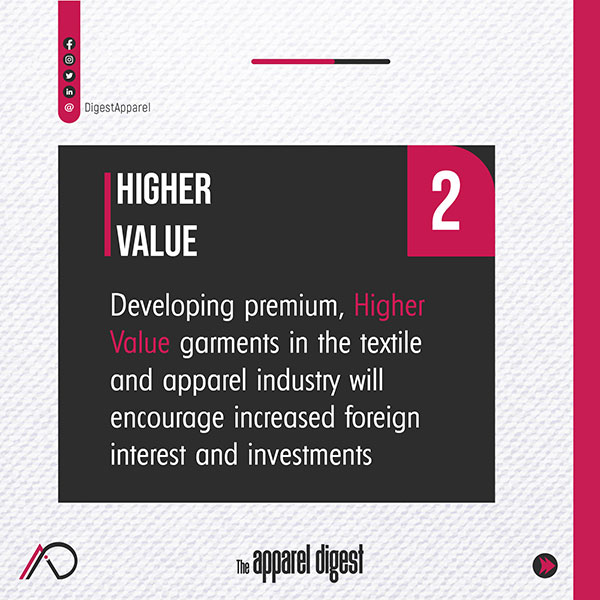The current textile world is loaded with synthetic materials produced through the union of petroleum and chemistry. These aseptic materials have already caused significant damage to nature. While everyone is looking for a sustainable and carbon-neutralized textile manufacturing solution, Spiber’s Brewed Protein™ may be the exact solution. This bio-degradable protein polymer is synthesized from a plant-based origin by a microbial fermentation process and spun into different quality yarns to produce variety of fabrics. It is expected that this ISO-certified Brewed Protein™ fiber’s quality and sustainable properties can help people to make new, creative, and powerful choices over animal protein-based fibers such as cashmere, silk, and wool.
How it’s made?

15 years of research and studies, paved the way for Spiber to synthesize protein-based polymer through microbial fermentation of plant-based ingredients. Currently, they are using Bonsucro-certified sugar extracted from renewable agricultural sources like sugarcane or corn as their initial raw materials. Their innovative lab work has enabled them to alter the DNA structure followed by fermentation (brewing) of sugar which generates specialized protein polymer Brewed Protein™ with enchanting properties and qualities. Once the fermentation is done, the polymer is then extracted and undergoes several treatments to achieve the required qualities and characteristics. It is completely bio-degradable in soil as well as in seawater. Though the protein evolution requires millions of years, Spiber’s cutting-edge lab technology reduced the time to a year or even a month and made it possible for industrial applications.
Comparative Quality Analysis
The pivotal purpose was to match the properties of natural protein-based fibers or even make them far better than natural fibers. Let’s compare its’ quality one by one with natural protein fibers –
Brewed Protein™ fibers and Silk: Where producing silk fiber involves multiple workforces as well and it is collected from silkworm animals. Then producing Brewed Protein™ fiber doesn’t involve that amount of labor with no animal source included. Comparatively, it shows good qualities such as smoothness, luster, and aesthetic nature like silk while being environment-friendly altogether.
Brewed Protein™ and Cashmere: This luxurious fiber is collected from the undercoats of Mongolian goats. Its’ smooth, comfortable, and amicable lustrous properties are satisfiedly mimicked by the Brewed Protein™ fiber. Moreover, Brewed Protein™ fiber production uses less water and energy compared to Cashmere which contributes to the sustainability approach. In addition, it causes no animal welfare issues.
Brewed Protein™ and Wool: Wool is valued for its’ insulation and moisture-wicking properties but has animal issues. Brewed Protein™ fiber can be engineered to impart such insulation and moisture-wicking properties with efficient energy consumption and no dependency on animals at the same time.
Offers Various End Uses And Applications

With great industrial potential, Brewed Protein™ fibers can be utilized to make a wide range of goods, including fleece fibers, spun yarn, denim fabric, and staple fibers. For instance, denim manufactured from Brewed Protein combines nicely with cotton to offer sustainability and durability, which is a crucial combination for customers who care about the environment.
These fibers are used to make spun yarn, which is soft and flexible and perfect for cozy knits, while the staple fibers are highly insulating and go well with outerwear. Fleece fibers are also warm and moisture-wicking, making them ideal for sportswear.
Because Brewed Protein fibers may mimic the softness and opulence of silk or cashmere while still being tailored to fulfill performance requirements like strength and elasticity, these materials have a high likelihood of being used in the clothing industry.
Contribution Towards Sustainability
Let’s delve into its impact on sustainability and the environment. Starting from the root level, to produce textile materials its initial raw material is sugar which is completely bio-degradable, and protein polymer is formed through a bio-chemical process causing no pollution at any level. Having said that the textile manufacturing process using Brewed Protein™ polymer shows impressive features such as reduced greenhouse gas emission by up to 79%, eutrophication by up to 82%, land use by up to 99%, and water use by up to 97% (According to LCA study). On the other side, other natural protein-based fiber production emits a large volume of greenhouse gases with toxic substances compared to these newly developed protein-based fibers.
Spiber’s Prospects And Goals
1. Future Prospects and Goals
As a leader in sustainable materials, Spiber sees Brewed Protein™ revolutionizing the textile industry. Their lofty objectives consist of:
Net Zero Carbon Footprint: Spiber wants to attain net zero greenhouse gas emissions from the textile industry by the year 2035. This pledge supports international efforts to mitigate climate change.

Circularity: By reusing and recycling textiles and clothing made of biobased materials, Spiber hopes to complete the circle. Used textiles (think rayon, cotton, and linen) will be transformed into nutrients for their microbial fermentation process. By using a circular method, waste, and resource depletion are reduced.
2. Industrial Production and Significance
Current Volume: Spiber is starting to produce Brewed Protein™ on an industrial scale. Similar to cashmere and silk, their fibers are being used in denim, filament yarns, and staple fibers. They have already taken a vision to produce 1000T in 2025.
Importance: Sustainability is the key to importance. Brewed Protein™ is not dependent on petrochemicals or animals, in contrast to conventional materials. It contributes to cleaner oceans, lessens land use, and uses less water. Spiber’s concept marks a significant turn in the direction of a future of regenerative textiles as the fashion industry struggles with its environmental effects.

